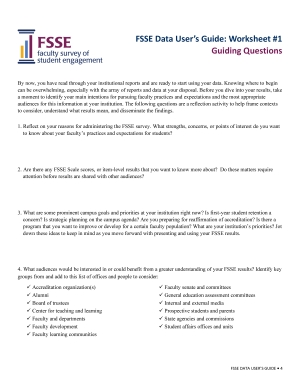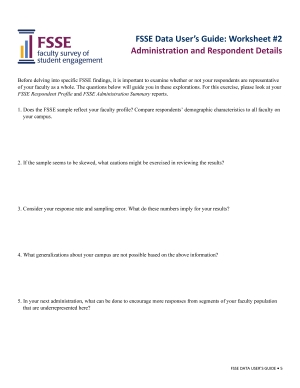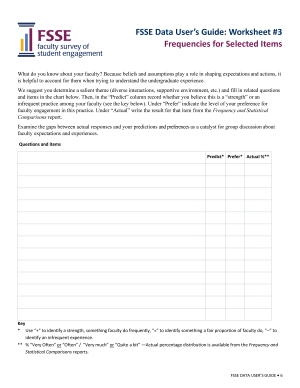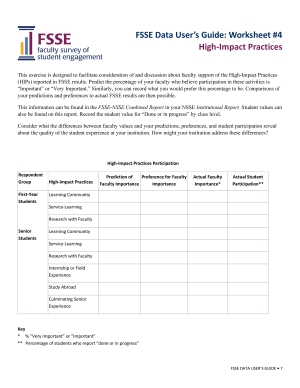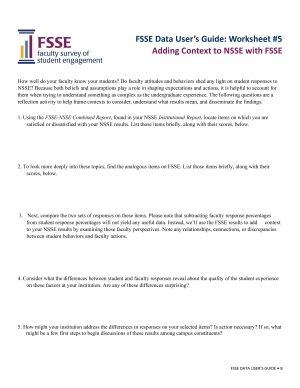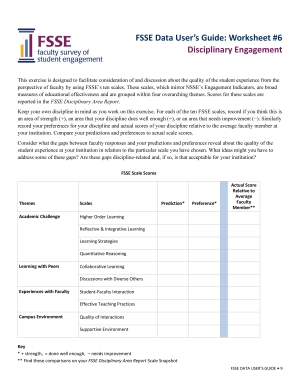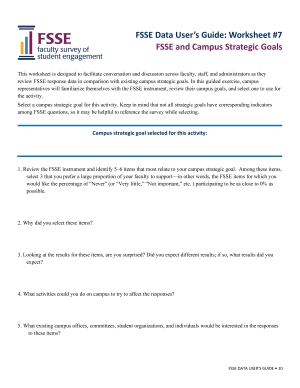The Faculty Survey of Student Engagement (FSSE) was designed to complement the National Survey of Student Engagement (NSSE) by measuring faculty expectations and student engagement. Whether a campus is interested in assessing the importance faculty place on various areas of learning and development or the nature and frequency of faculty-student interaction, FSSE provides colleges and universities with diagnostic, actionable information that can inform efforts to improve the experience and outcomes of undergraduate education.
FSSE results can inform efforts to enhance student learning and success across campus offices and projects including curricular reform, marketing and communications, faculty development, learning support, and scholarship of teaching and learning. As an assessment instrument, FSSE can be used to identify both areas of strength as well as opportunities for growth, to help make the classroom and campus environments more cohesive with student needs and expectations.
Making FSSE data accessible and useful is key to engaging various campus audiences in identifying and analyzing institutional and program successes and shortcomings and for developing targeted strategies for continuous improvement—critical steps in institutional growth and change. How can institutions determine who is interested in FSSE results? What are the best ways to connect campus groups and committees with this information? What audiences could use this information in responding to campus challenges and opportunities?
An early step in making the best use of FSSE data and reports is to revisit your institution’s rationale for participating in FSSE. What motivated your FSSE participation and what does the campus intend for the results? Knowing if your campus plans to use FSSE for accreditation, for routine assessment, or for faculty development efforts is important for determining where data are most relevant and for informing audiences eager to use the results.
Simply reporting FSSE results will not lead to action
Using FSSE data effectively also requires accurately interpreting the results and disseminating the interpretations along with the results to people who can do something about student engagement. Simply reporting FSSE results will not lead to action. Many institutions have found that sharing results at retreats, faculty workshops, first-year experience task force meetings, and other group gatherings is a productive way to stimulate interest and action.
This Guide's Purpose
Although FSSE’s reports are designed for usability, the path to using the data may not readily emerge in reviewing them. Determining how to encourage the use of FSSE data where it has potential to bring improvement and to ensure that the reports influence campus action can be challenging. To help institutions address these challenges, this guide outlines strategies, gives suggestions, and provides worksheets with exercises to help institutional leaders facilitate discussions with a wide range of campus stakeholders to make meaning from the results, identify priorities for action, and formulate uses of FSSE data for accountability, assessment, and improvement.


